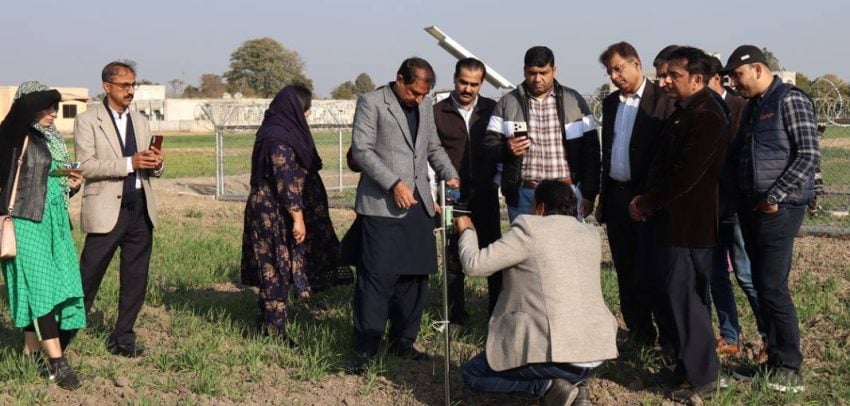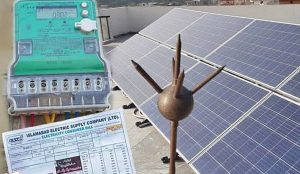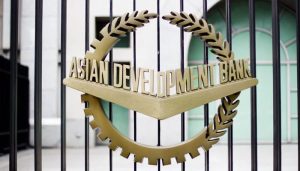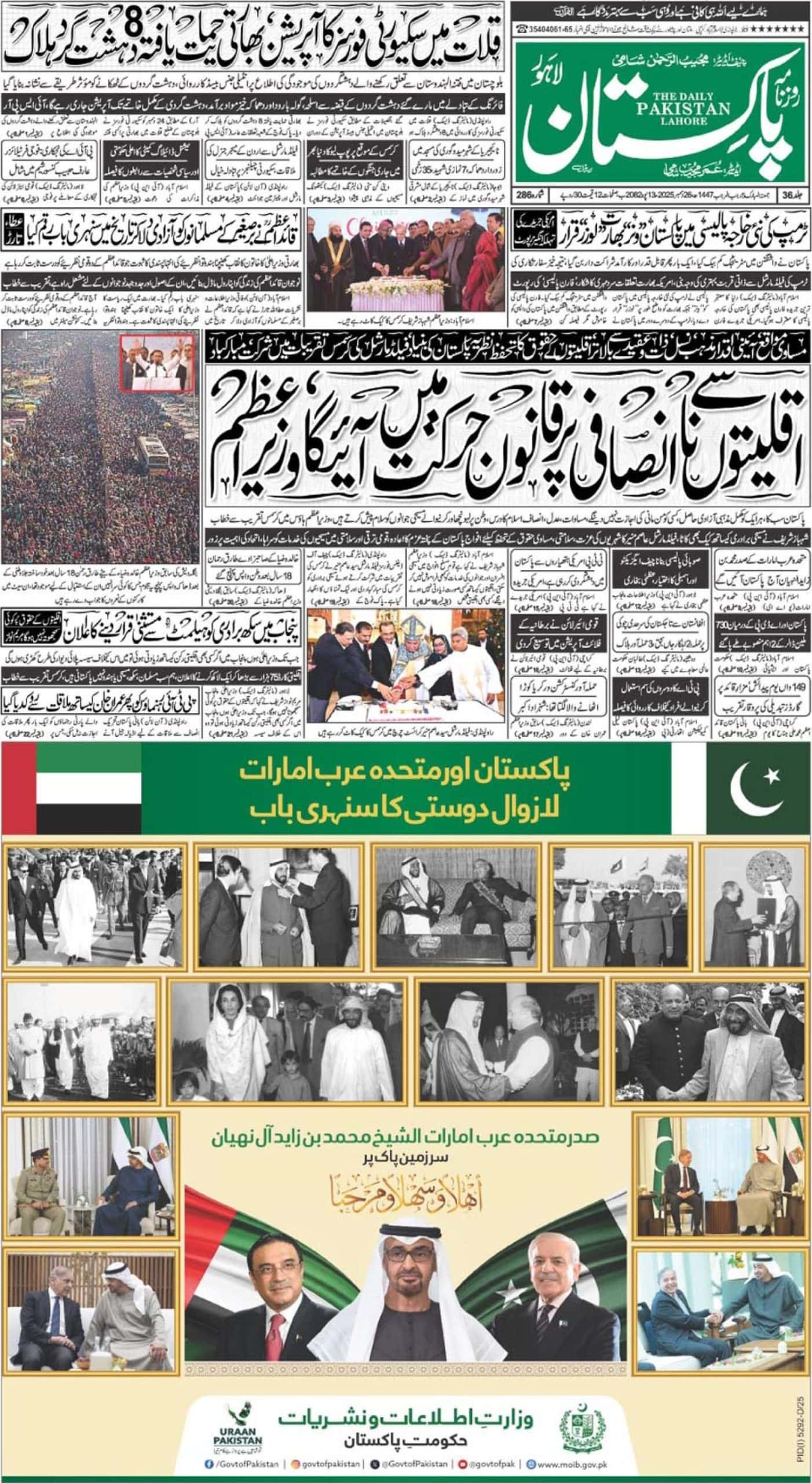CHAKWAL – The International Water Management Institute (IWMI) recently arranged a trip for over ten journalists on a day-long capacity-building media exposure field visit to Punjab’s Chakwal district.
The purpose of the visit was to inform participants about the significance, benefits, and positive impacts of the IWMI’s interventions under the UK Aid-funded Water Resource Accountability in Pakistan (WRAP) Programme Component 1: Climate Resilient Solutions for Improving Water Governance (CRS-IWaG) in this region.
During the visit, Jehanzeb Masud Cheema, Deputy Country Representative IWMI, gave a detailed briefing on the various interventions in the drought-hit district to improve water use efficiency, water governance, agricultural productivity, and adequate water resource management.
According to Cheema, this Barani region has no canal water, and the underground water table is 300 meters deep. The local areas are rain-fed agricultural land with limited water access for crops and livestock.
He said the automated soil moisture sensor is a cost-effective, user-friendly intervention that can help farmers learn when to irrigate crops and orchards. IWMI has installed over 20 automated soil moisture sensors at various places in the district to help farmers schedule irrigation when required, and we hope that this technology will be used by other farmers as well as they see its benefits.
Dr Cheema also briefed the media team regarding the Conductivity, Temperature and Depth (CTD) sensors installed in the region in collaboration with the Punjab Irrigation Department (PID) and with the helpof Barani Agricultural Research Institute (BARI).
This year, there was not enough seasonal rainfall in the Potohar region, which increased the drought situation. From September 1, 2024, to January 15, 2025, Punjab received 42 percent less rainfall than usual, he added.
The visiting media team then proceeded to the country’s fourth eddy covariance (EC) flux tower, which IWMI installed in BARI. The flux tower, which will inform research by the CGIAR Initiative on NEXUS Gains, is designed to collect accurate data on water usage, carbon emissions, and energy fluxes from irrigated agricultural landscapes.
In addition, IWMI Pakistan has installed three flux towers in irrigated landscape areas in Okara, Faisalabad, and Rahim Yar Khan.
Representatives from the officials of the BARI and other relevant departments also provided valuable information to the visiting media.
The participants lauded the IWMI initiative, saying the visit enhanced their understanding of the importance of water governance, data-driven solutions for water security and how climate change affects the country’s water sector.
IWMI concludes water-food-energy-ecosystems nexus winter school














